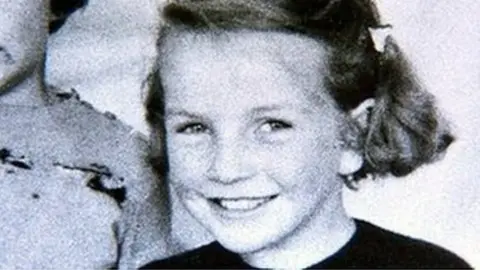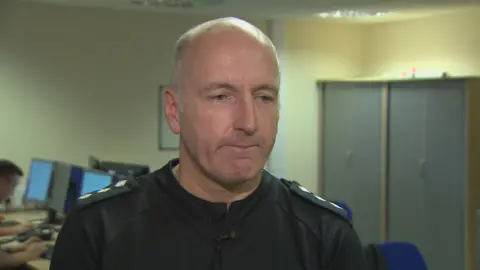More than 730 on 'long-term' missing list
More than 730 people in Scotland are classed as "long-term" missing, according to new figures.
Police Scotland's new national missing person unit has taken on the task of analysing missing person data.
Last year, almost 22,000 missing person investigations were made in Scotland, 62% of them involving children.
The report, seen by BBC Scotland, shows that 99% of people have since been found safe and well - including all the children who went missing.
A total of 91 adults were found dead and 16 are still missing.
Once someone has been missing for more than 28 days they are categorised as long-term missing.
The police database goes back to 1957 and many people have been missing for decades.

Police Scotland is now running phase two of Operation Logoria - the aim of which is to trace all of Scotland's long-term missing.
One of their efforts is trying to collect the DNA from family members of all of them.

Missing people in numbers

- 21,989 missing people were investigated by police in 2016/7
- 55% of investigations concerned someone who has been missing before
- 99% were traced alive
- 91 were traced deceased (87% of these were men)
- 12,283 (56%) of the missing were men
- 9,691 (44%) were women
- 13,615 were children, and 7,243 of these were classed as "looked after"
- 4,922 (22%) were people with mental health vulnerabilities
- 75% of people missing from hospital had mental health vulnerabilities
- 540 (2%) had dementia
- 9,000 (41%) were reported missing between 22:00 and 07:00
- 3,630 (17%) were reported missing on Saturday, only slightly more than other days
- 2,153 went missing in May - the spring and summer months seem to be higher than autumn and winter
- 3,911 (17.8%) of investigations were in Edinburgh - the largest number of any council
- 6 hours - 35.8% of investigations concluded within six hours
- 93% were concluded in three days and 99% of people return within two weeks

Cross-checking databases

Ch Insp Lex Baillie, the head of Scotland's new National Missing Person Unit, said that every single case remained open.
He said they were hoping to gather the DNA of those still missing in order to cross-check it with the UK missing person database and, in some cases, those databases abroad.
Collecting familial DNA also helps the unit to rule out links to unidentified human remains.
Ch Insp Baillie said: "We have looked at the long-term missing people very closely dating back to 1957 and the Moira Anderson case and as a result of that we have found 61 people safe and well," he said.
"There are 41 people who we have found to have died in the past few years, unfortunately, but that gives a little bit of closure to the families."
He said: "We will do what we can to bring in all the information we can to find individuals.
"We are seeking to get the DNA where we can but the families are spread around the world.
"Moira Anderson's sisters are in Australia for example. So it's not as easy as you would think but we are trying to identify DNA sources and samples where we can. Each of the 732 is an individual story."
